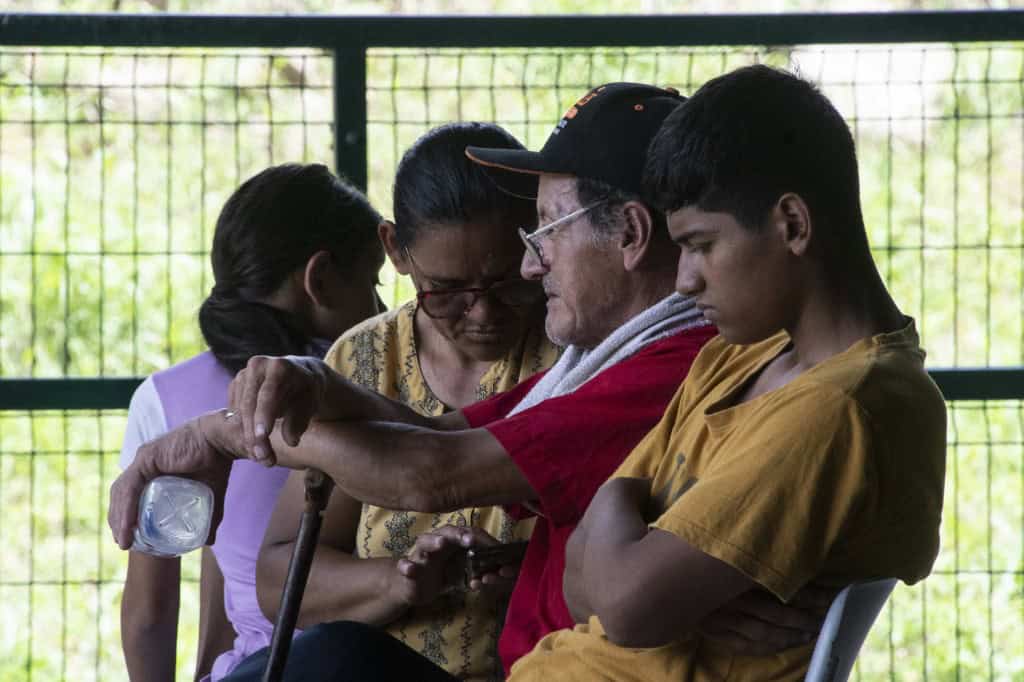Approximately 200 migrants deported from the United States to Costa Rica’s Southern Zone have been granted a special humanitarian status, offering them temporary legal protection and freedom of movement within the country, according to the General Director of Migration, Omer Badilla.
The migrants, coming from countries such as Afghanistan, China, Iran, Russia, and Pakistan, arrived in Costa Rica in February on U.S.-funded flights as part of the Trump administration’s intensified deportation efforts. They were initially detained at the Special Attention Center for Migrants (CATEM) in Corredores, near the Panama border, under conditions criticized by human rights groups. A lawsuit filed by human rights lawyers before the United Nations Committee on the Rights of the Child alleged that Costa Rica violated the rights of 81 migrant children among the group by holding them in inadequate conditions without access to education or legal recourse.
Badilla announced that the new humanitarian category, formalized under Resolution D.JUR-0135-04-2025-JM-ABM, ensures these migrants can move freely within Costa Rica and are protected from forced repatriation to their home countries if they face a well-founded fear for their safety. “The purpose of this resolution is to ensure that none of these individuals are forced to return to their countries of origin due to concerns for their safety and physical integrity,” Badilla stated.
The Professional Migration and Alien Police (PPM) will issue individual resolutions granting a three-month legal stay, with the possibility of a three-month extension after verifying eligibility requirements. Migrants may continue residing at CATEM, where they have access to food and facilities, but the authorization does not permit employment unless they later obtain a regular migratory category that allows it.
The resolution imposes strict conditions: any criminal record disqualifies migrants from the benefit, and the permit will be revoked if an individual commits a crime, poses a threat to public order, or is linked to organized crime. Additionally, leaving Costa Rica automatically cancels the permit. If the authorized stay expires, migrants must either leave the country or pursue regularization through established migratory categories.
Costa Rica’s decision follows significant legal and humanitarian pressure. The country’s ombudsman and international human rights organizations denounced the initial indefinite detention of the migrants, particularly the children, as a violation of their rights. The lawsuit highlighted poor conditions at CATEM, including reports of migrants sleeping on cardboard and experiencing visible distress.
Human rights organizations have acknowledged the temporary permits as progress but expressed concerns about the lack of long-term solutions. “Costa Rica’s temporary permits may ease immediate concerns, but rights groups are pressing for longer-term solutions and legal protections for migrant families,” noted a report by Newsweek. Ongoing litigation and international scrutiny are likely to shape how Costa Rica and neighboring Panama handle future deportation cases.
Vice Minister Badilla emphasized Costa Rica’s reliance on the U.S. for security and public health, noting that the country agreed to accept deportees under economic and political pressure. Despite a backlog of over 200,000 asylum applications and strained shelter capacity, Costa Rica is attempting to balance humanitarian obligations with its limited resources.
The resolution also opens a potential path for migrants to integrate into Costa Rican society, though authorities have not specified how many will receive permits. For now, the humanitarian status offers a reprieve for the deportees, many of whom feared returning to their home countries and faced legal limbo in Costa Rica.






